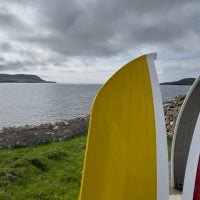Deadline: 13-Feb-22
The Critical Ecosystem Partnership Fund (CEPF) and the Caribbean Natural Resources Institute (CANARI), as regional implementation team (RIT) for the Caribbean Islands Biodiversity Hotspot, are inviting letters of inquiry (LOIs) from non-governmental organizations, community groups, private enterprises, universities and other civil society organizations active in the eligible geographic areas in Antigua & Barbuda, The Bahamas, the Dominican Republic, Jamaica, Saint Lucia, and St. Vincent & the Grenadines.
The Caribbean Islands Biodiversity Hotspot, an archipelago of biodiversity-rich tropical and semi-tropical islands, comprises 30 nations and territories and stretches across nearly 4 million square kilometres of sea. Its insular geography and complex geology have created unique habitats and high species diversity. Despite their small land area, the Caribbean Islands support one of the highest numbers of globally threatened species of any hotspot in the world. With around 1,000 globally threatened species, the Caribbean is one of the most threatened hotspots in the world.
Funding Information
This call covers funding for small and large grants:
- Small grants are between US$5,000 and US$50,000. The RIT expects small-grant projects under this call to be contracted and start implementation between May and June 2022.
- Large grants are defined as greater than US$50,000. CEPF decides on the amount to be awarded based on the scope and magnitude of the conservation results expected to be achieved. CEPF expects large-grant projects under this call to be contracted and start implementation between August and September 2022.
Ineligible Activities
CEPF grants cannot be used for activities on the following “negative list”:
- The use of child or forced labor.
- Purchase and use of formulated products that fall in the World Health Organization classes IA and IB or formulations of products in Class II if they are likely to be used by, or be accessible to, lay personnel, farmers or others without training, equipment and facilities to handle, store and apply these products properly.
- Financing of elections or election campaigning.
- Funding salaries or salary supplements of government security personnel.
- Purchase of firearms or other weapons.
- Activities that contravene local laws related to purchase and consumption of tobacco, alcoholic beverages and other drugs.
- Manufacture of alcohol for local consumption and/or cultivation of crops for this purpose.
- Activities carried out in relation to the adjudication of lands under dispute.
- Physical resettlement of people (voluntary or involuntary).
- Purchase of land.
- Activities that have potential to causes adverse impacts to critical habitat.
- Conversion, deforestation or degradation of natural forests or other natural habitats, including, among others, conversion to agriculture or tree plantations.
- Activities related to commercialization of illegal timber and non-timber forest products.
- Construction and/or restoration of religious buildings.
- Removal or alteration of any physical cultural heritage property (includes sites having archeological, paleontological, historical, religious or unique natural values).
Eligible Countries
Antigua and Barbuda, The Bahamas, Dominican Republic, Jamaica, Saint Lucia, and Saint Vincent and the Grenadines
Eligibility Criteria
Proposed projects that target direct global environmental benefits and meet the following eligibility criteria are welcome:
- Project is located in the Caribbean Islands Hotspot.
- Project is located in a country that is not subject to sanctions under U.S. law or other applicable law.
- Project supports a strategic direction outlined in the Caribbean Islands Hotspot ecosystem profile and investment strategy.
- Applicant is authorized under relevant national laws to receive charitable contributions.
- Applicant is not a government agency or institution.
For more information, visit https://www.cepf.net/grants/open-calls-for-proposals/2021-2nd-caribbean-islands-small-large-grants









































